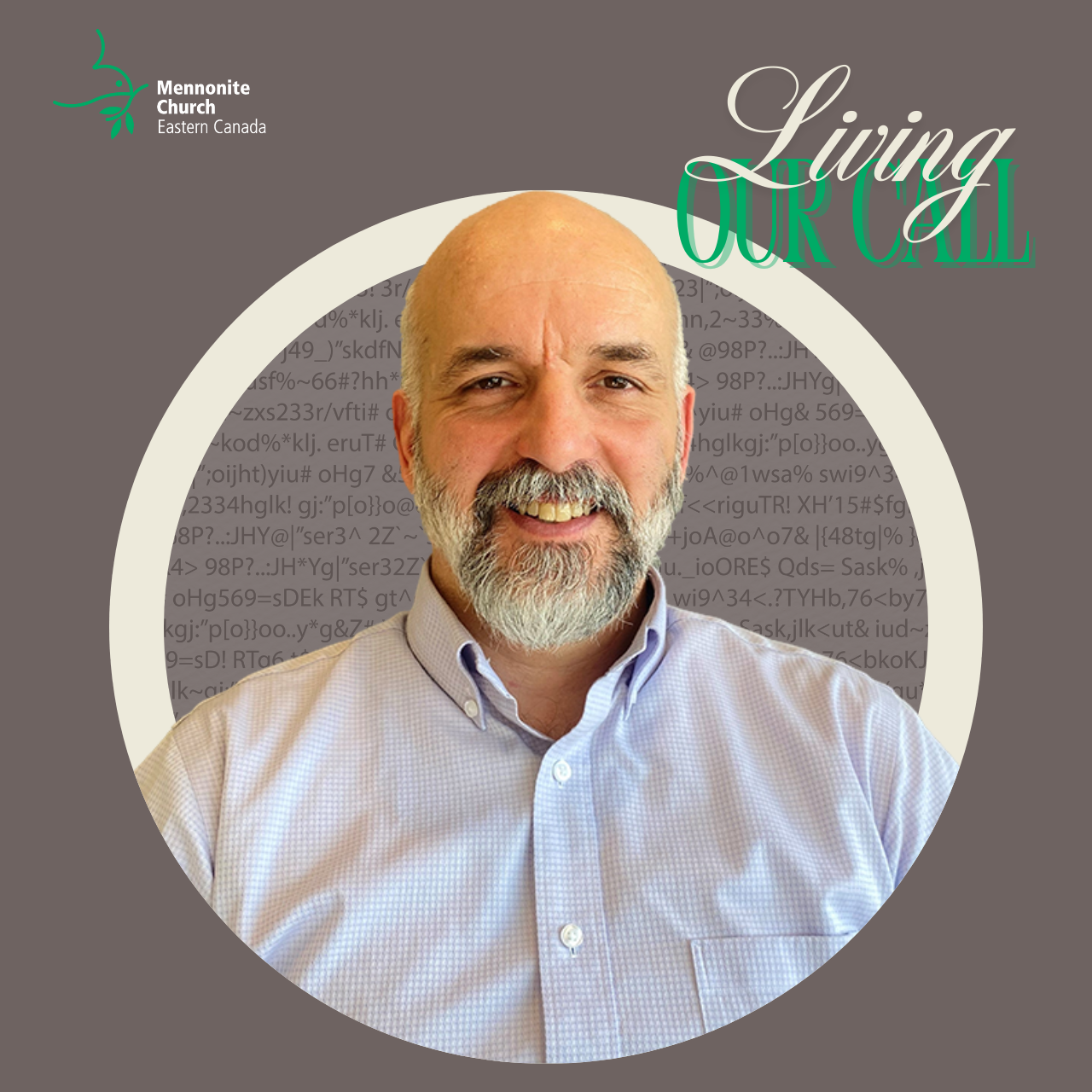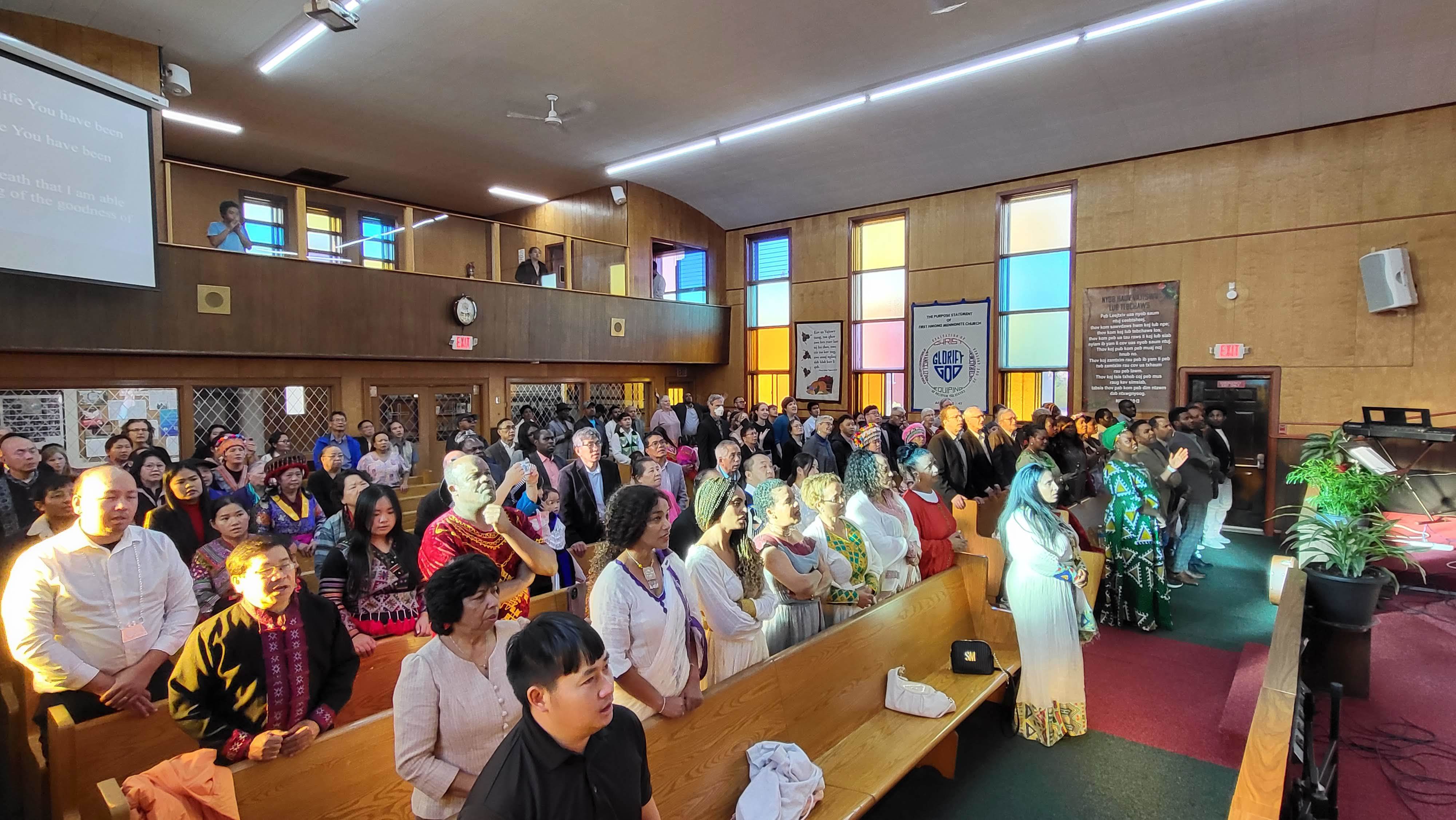Diversity Within Our Church - A Strength and Challenge
May 7th
 Our church is a “diverse community”—so says our identity statement. We treasure this diversity as both an ongoing strength and a life-giving challenge. MCEC is not unique in this. Christian communities have always contained a diversity of members and leaders. From the very beginning, these communities have included individuals of different social strata, ethnicity, family type and political orientation. The good news of Jesus spread widely in the early days of the faith into new cultural and language contexts. Early Christian communities included folks that we might now say were of different 'races' as well as those who would not line up neatly with contemporary gender norms.
Our church is a “diverse community”—so says our identity statement. We treasure this diversity as both an ongoing strength and a life-giving challenge. MCEC is not unique in this. Christian communities have always contained a diversity of members and leaders. From the very beginning, these communities have included individuals of different social strata, ethnicity, family type and political orientation. The good news of Jesus spread widely in the early days of the faith into new cultural and language contexts. Early Christian communities included folks that we might now say were of different 'races' as well as those who would not line up neatly with contemporary gender norms.
And yet, in some crucial ways, Christians have taken some marked steps back with respect to diversity.
As I understand it, the comfort Christians had with various types of diversity was grounded in the experience of Pentecost as well as the belief that all people bear God’s image and in the conviction that Jesus Christ, the Incarnate One, was Lord of all. Other factors were at work as well, but these three theological convictions played an important role.
In the first place, the overflow of the Spirit’s presence at Pentecost, supported by Peter’s experience narrated in Acts 10-11 and the prior inclusion of God-fearers in Jewish communities, prompted followers of Jesus to push wide the doors of welcome. Second, some ancient theologians, Gregory of Nyssa might now be the most famous, believed that a key implication of Jesus’ redemptive work was the restoration of the original equality of all people as divine image-bearers. Finally, early Christians, like their Jewish siblings, believed that the God they worshiped was not a tribal patron, but rather was the creator of all and the one who set out the moral order. They believed that in Jesus Christ they all became God’s children (Gal. 3).
This biblical affirmation of diversity, however, did not mean that the early church was free of conflict. For instance, Paul opposed Peter “to his face” regarding one aspect of inclusion. A variety of teachings and potentially authoritative texts abounded in the early decades. Communities needed to sort which texts and teachings they believed were valid. Disagreement and diversity are nothing new for Christians. Indeed, the church has never existed without them.
We know that we do not agree on everything, and not even on some important things...
And yet, in some crucial ways, Christians have taken some marked steps back with respect to diversity. The welcoming of women as leaders in the early church was largely lost in later years. White European Christians eventually began to think of themselves, not as people “grafted into” a tree of faith that preceded them (Rom. 11), but as the main stem. When the Christian faith was knit into the identity of European kingdoms—what we sometimes describe as Constantinianism—it was tied to imperial agendas, involving territorial expansion and economic hegemony.
One of the implications of this history is that the church has needed to hear the voices of secular institutions and ‘outside’ movements. This witness has included things like the separation of church and state, abolitionism, woman’s suffrage, DEI, Pride Month, Idle No More, Black Lives Matter, and other emancipatory initiatives. While the church’s need for voices like these might be disconcerting to some, it should not be a surprise. Repentance is central to our faith. The Christian spiritual tradition teaches us to see in every stranger the face of Jesus and to listen for divine messages from surprising sources (Num. 22).
As we respond to these voices, a twofold challenge ensues: First, since these movements may not speak “church,” it can be easy for us to ignore them or to overhear them and miss the fact that these agendas might diverge at points from our Christian calling. Second, the necessary correctives these movements carry are often overtaken by the polarized political landscape. For example, when I write approvingly of some of the things these voices have said to the church, readers may well assume a whole host of things about my views on history, ethics, politics, family structures, education, library books, and the appropriate color of sidewalks. Theological discernment has been captured by political ideology.
We can listen to the voice of the same Spirit.
What does this mean for our church? Well, I am aware that not all local churches within MCEC affirm queer folks in leadership roles (though MCEC will support these individuals). As well, some people within our churches might have a hard time affirming leaders who do not share their ethnic background (though MCEC welcomes leaders of all ethnic backgrounds). Though many of us affirm the goodness of diversity in some generic way, we likely will not all agree on what that means. There are bound to be aspects of the diversity within our church that make us uncomfortable or even defensive. Given our Anabaptist church polity and long-held appreciation for the freedom of conscience as well as the general way mandating “correct” beliefs backfires, there is little we can do to smooth out these wrinkles in our church fabric. This is true even though we deeply affirm the beloved-ness of all and want others to enjoy the hospitality of God’s table.
Here is what I propose: Let’s walk together as fellow pilgrims. We know that we do not agree on everything, and not even on some important things—but we can still be committed to recognizing each other, especially those fellow pilgrims who are least like us, as God’s beloved children.
We are each created in God’s image and have been given gifts that our community of faith needs. If we uphold these basic beliefs and a hospitable way of traveling together, we can engage common challenges. We can listen to the voice of the same Spirit. We can follow the same Jesus.
